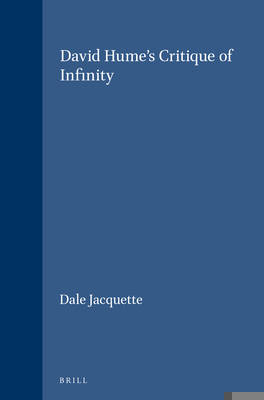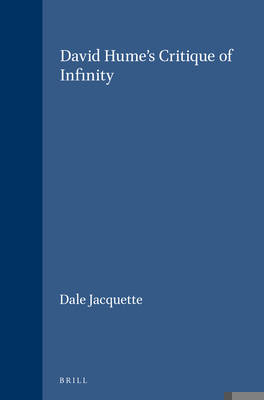
- Afhalen na 1 uur in een winkel met voorraad
- Gratis thuislevering in België vanaf € 30
- Ruim aanbod met 7 miljoen producten
- Afhalen na 1 uur in een winkel met voorraad
- Gratis thuislevering in België vanaf € 30
- Ruim aanbod met 7 miljoen producten
Zoeken
Omschrijving
This new study of David Hume's philosophy of mathematics critically examines his objections to the concept of infinity. Although infinity raises some of the most challenging paradoxes for Hume's empiricism, there have been few detailed and no fully comprehensive systematic discussions of Hume's critique. In a series of eight interrelated arguments, Hume maintains that we cannot experience and therefore can have no adequate idea of infinity or of the infinite divisibility of extension. He proposes to replace the notion of infinity with an alternative phenomenalist theory of space and time as constituted by minima sensibilia or sensible extensionless indivisibles. The present work considers Hume's critique of infinity in historical context as a product of Enlightenment theory of knowledge, and assesses the prospects of his strict finitism in light of contemporary mathematics, science, and philosophy.
Specificaties
Betrokkenen
- Auteur(s):
- Uitgeverij:
Inhoud
- Aantal bladzijden:
- 399
- Taal:
- Engels
- Reeks:
- Reeksnummer:
- nr. 102
Eigenschappen
- Productcode (EAN):
- 9789004116498
- Verschijningsdatum:
- 14/11/2000
- Uitvoering:
- Hardcover
- Formaat:
- Genaaid
- Afmetingen:
- 171 mm x 244 mm
- Gewicht:
- 879 g

Alleen bij Standaard Boekhandel
+ 491 punten op je klantenkaart van Standaard Boekhandel
Beoordelingen
We publiceren alleen reviews die voldoen aan de voorwaarden voor reviews. Bekijk onze voorwaarden voor reviews.








